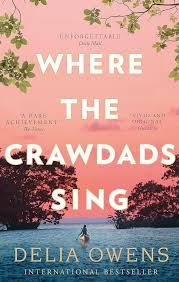21. Coop
byCoop, set in the summer of 1961, paints a raw and emotional picture of Kya’s profound loneliness and grief following the abandonment by Tate. The oppressive heat of the season exacerbates her isolation, as the palmetto fronds rattle menacingly in the wind, a sound that mirrors the turbulence within her soul. The sweltering weather, with its sticky humidity, traps Kya in a haze of sadness, much like the weight of the heat pressing down on her. For days, she retreats into the quiet sanctuary of her bed, unable to summon the energy to engage with the world around her. The birds’ cries, once comforting and familiar, no longer bring the solace they once did, and the marshland—her lifelong refuge—feels more like a distant memory. Kya’s body is physically drained from the heat, her sheets drenched with perspiration, but it is the weight of her emotional pain that leaves her truly exhausted. Tate’s departure, after the intimacy and connection they shared, has left an indelible mark on her heart, reminding her that even the people she loves will eventually leave her. This abandonment, combined with the decades of loss she has already suffered, pulls Kya deeper into herself, shutting her off from the world.
Kya’s isolation grows as she confronts the bitter reality that, just like her family, Tate has gone. His leaving marks a painful chapter in her life, reinforcing her belief that attachment to others only brings sorrow. Lying in bed, physically paralyzed by the heat and emotionally crippled by heartbreak, Kya becomes consumed by the thought that love is an illusion. The deep wounds from her childhood, with the consistent desertion of those she relied on, have made her distrustful of any affection. Her grief, compounded by years of abandonment, leads her to vow never to open her heart again, but even as she forms this resolution, there is a flicker of resistance within her. It’s when a Cooper’s hawk appears unexpectedly that the first inkling of hope stirs within Kya. The hawk’s graceful flight captures her attention, and she realizes, if only briefly, that life may offer some surprises worth living for.
Slowly, Kya pulls herself from the suffocating depths of her grief, though it is a reluctant journey. The hawk’s arrival, so sudden and unexpected, acts as a spark, drawing her back to the world outside her sorrow. Although her heart remains heavy, the hawk provides her with the first sense of something beyond the pain she’s been entrenched in for so long. Her first step back into the world is to visit the beach again, the place that once felt so familiar and comforting but now feels haunted by the ghosts of past memories. Still, Kya finds herself there, drawn by the need for connection and a sense of peace she hasn’t felt in days. As she feeds the gulls, her solitary existence on the beach begins to offer some comfort, a brief reprieve from the tumultuous feelings that had consumed her for so long. The feel of the birds’ feathers against her skin, the simple act of feeding them, brings a quiet, cathartic release. For a moment, she allows herself to cry freely, a mixture of sorrow and relief flowing together. These tears, coupled with a small, almost imperceptible smile, signify the beginning of her healing. Though the pain is still present, the comfort she draws from nature—so deeply intertwined with her sense of self—marks the start of a transformation. This chapter beautifully weaves together the themes of grief, resilience, and the gradual journey toward healing, showing that even in the most solitary and desolate moments, there is the potential for renewal. Nature becomes Kya’s constant ally, offering both solace and hope as she learns to navigate the tides of her emotions.


